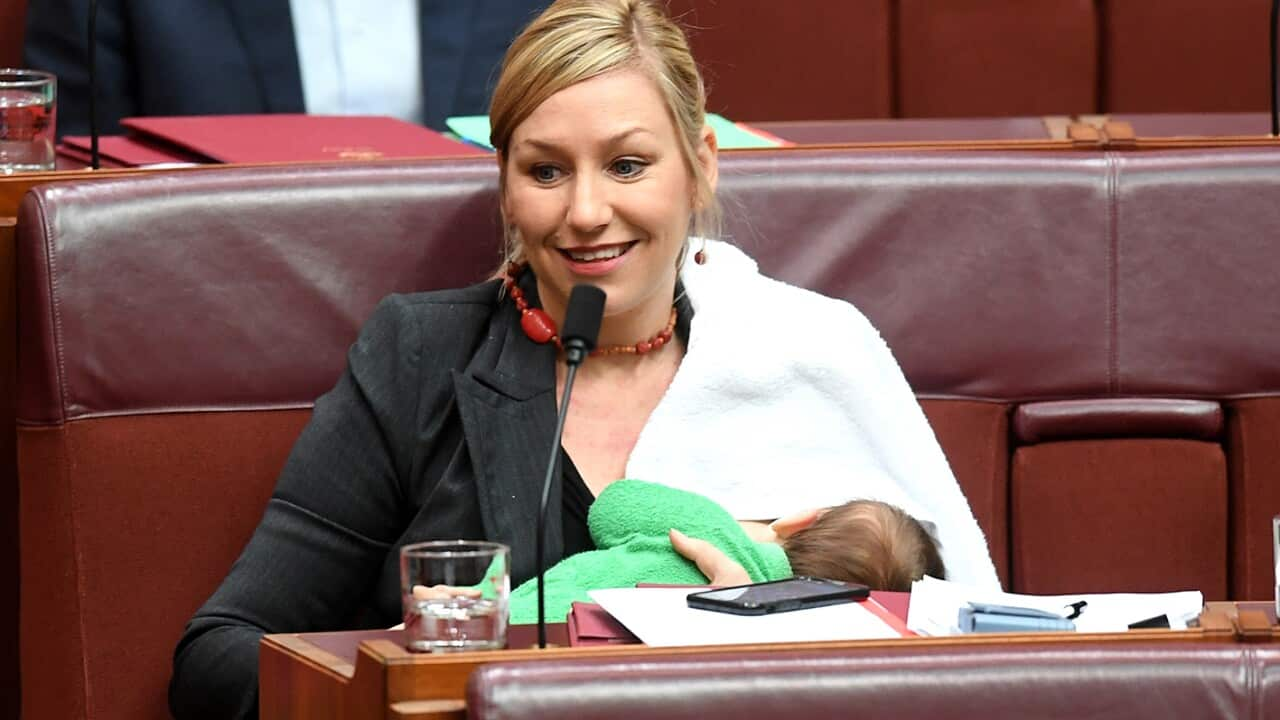I breastfed my daughter in the Australian Parliament because she was hungry.
Anyone who has been around a baby knows that when they’re hungry, you feed them.
The fact my simple act made international headlines was a surprise. I wish the same attention was paid when Parliament does things that hurt women, like cutting penalty rates, lowering of the HECS repayment threshold in the Budget or chronically underfunding of domestic violence services.
Too often, we take solace in gestures or feel-good moments, without doing the hard work of tackling underlying issues and inequality that hurt women, especially those lower down the economic ladder.
One way we can do this is by getting more young women in Parliament and in that sense I hope me breastfeeding my daughter made a difference.
Women belong in the places of power usually dominated by older men, and the more of us there, the more we can change things for all women.
One way we can do this is by getting more young women in Parliament and in that sense I hope me breastfeeding my daughter made a difference.
I realise that for most women, breastfeeding their baby at work isn’t their main concern.
It’s having the penalty rates they rely upon to make ends meet taken away, or having to pay back their HECS debt while earning less.
The lowering of the HECS repayment threshold in the budget will force 185,000 additional people to start paying back their fees and 62 per cent of them are women.
The penalty rates cut will target retail and hospitality workers, the majority of whom are women.
The work women do in feminised industries like childcare, nursing and teaching is greatly undervalued.
It is hard to imagine a Parliament would be so supportive of cutting penalty rates or hitting young graduates if it had more women in it.
It is hard to imagine a Parliament would be so deaf to the pleas of childcare workers being paid a wage about half the national average, if it had more women in it.
It’s hard to imagine leaders would indulge in wearing ribbons, giving speeches, and raising awareness of violence against women while chronically underfunding life-saving domestic violence services, if more of them were women.
It is hard to imagine they would tolerate that nauseating hypocrisy.
I know a lot of mothers go straight back to work out of financial necessity. I did it because our Parliament needs young women and parents.
The Parliament can’t legislate and make decisions in the best interest of our diverse community – and women – if it doesn’t reflect it.
We need to work towards flexible, family-friendly workplaces and affordable child care for all working parents. Especially now that many families have to have both parents working to make ends meet. We don’t just need young women in Parliament, we need people from different class backgrounds, LGBTQIA and Indigenous Australians, people with disabilities and people from our many migrant communities.
If we do this, our Parliament will be less likely to make laws and decisions that punish and even demonise members of these groups.
Women often get a raw deal at work, I realise I am particularly blessed, especially since my partner is able to take time away from work to support me and care for our baby.
Fathers deserve to be able to spend time with their children, but in Australia men are often granted only two weeks paid paternity leave and most don’t take it. The time after a child is born is especially precious and men should get the chance to bond and form a relationship. I am delighted my partner gets to experience parenting in its fullest with all the joy that brings.
To the detractors who say breastfeeding in public is not appropriate I say the commodification of women’s breasts is so endemic we barely notice it, why is a woman feeding her child so confronting?
And to those who say I can’t do my job and be a mother, that’s rubbish.
Women have always worked and reared children, whether that work was paid in the workplace or unpaid in the home.
I look forward to the day when all women have equality at work and feeding your child does not make headlines.
Senator Larissa Waters is the co-deputy leader of The Australian Greens.

